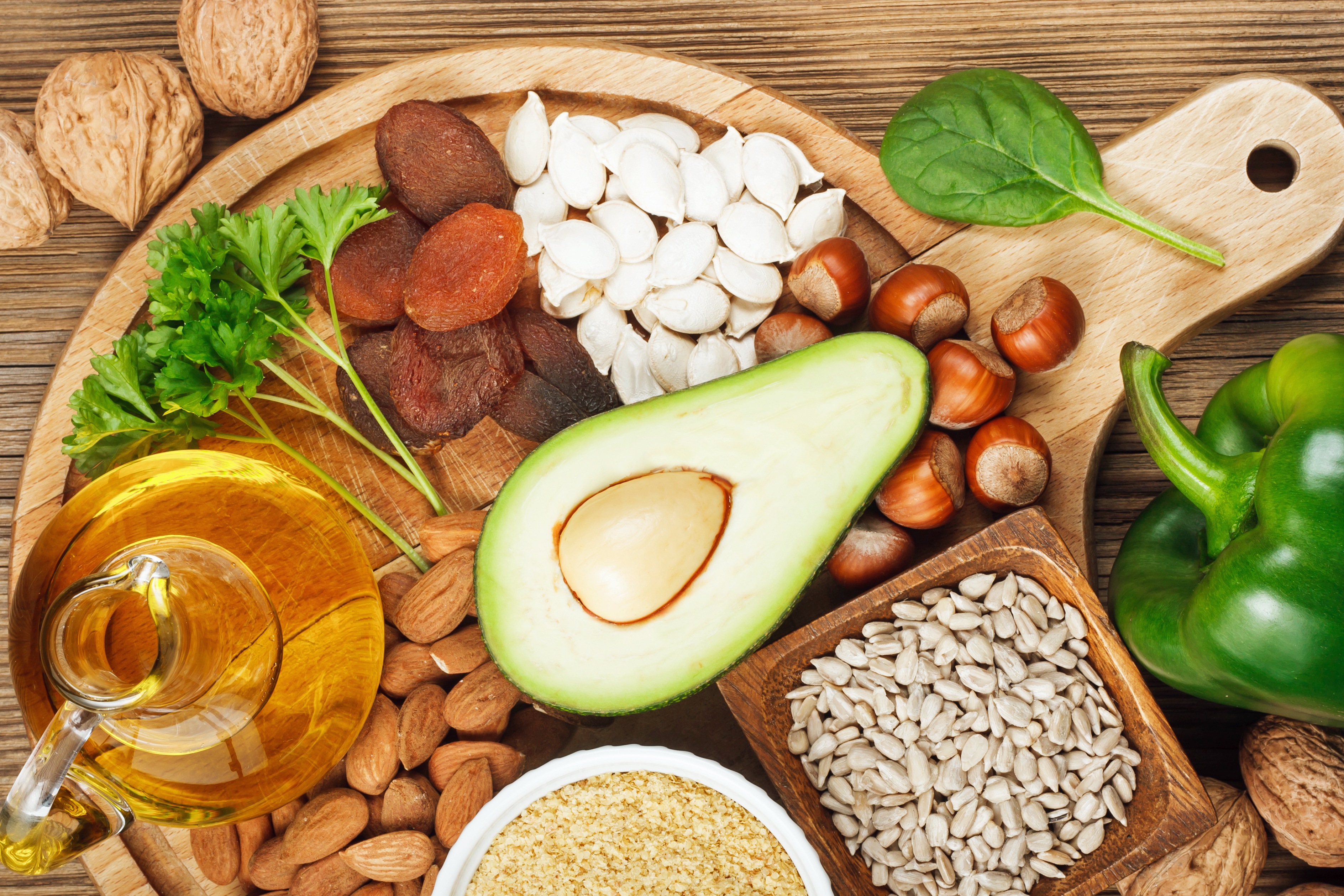Let’s talk about the essential function of vitamin E, and that is, it stabilizes cell membranes.
Now what’s interesting about the cell membrane is that it has a double layer of fat, both saturated and unsaturated fatty acids.
So people are always concerned about “oh my gosh saturated fat you need to avoid it.” well, the cell membrane is made out of saturated fat, and cholesterol and you have all sorts of things happening at the cellular membrane.
You have the protection of the inside of the cell. You have all these many little organs they’re called organelles. You have a little energy factory in there called the mitochondria. You have the lysosome, which is the garbage disposal. You have the DNA in the nucleus. You have the protein factories you have little factories that make things out of lipids.
So a lot is going on, and the cell membrane is there to protect it. Then you have billions of little pumps, one would be the sodium-potassium pump, and this pump generates a lot of energy to activate the muscles. The nerves and its primary job is to keep sodium out of the cell and potassium in to create this battery, and that electrical charge is inside the cell, and that can be used by the muscles and the nerves allowing them to function.
So vitamin E helps prevent the oxidation of this fat layer right here as well as the bulky structures inside the cell. It’s a significant antioxidant, and it does work with selenium as well. It prevents retinopathy, which is a disease of your retina, which is the nerve and so the eye.
It’s an extension of the brain sticking out in the eye, and the reason why vitamin E prevents this condition is that vitamin E is all about protecting fat-soluble structures. Anything related to the nerve has a fat layer. It’s called a myelin sheath because vitamin E is a fat-soluble vitamin.
It also supports glutathione, which is the most potent antioxidant in your body, and it mainly works in your liver.
It also prevents nerve damage because of the myelin sheath, which is all fat.
Most of the vitamin E is stored in the liver, and the fat cell, but with significant amounts inside your pituitary.
So think about it, all the sex hormones, estrogen, progesterone testosterone, even cortisol originate as a controlling hormone in your pituitary, so because these hormones are made out of cholesterol and fat, you need high levels of vitamin E to protect them from being oxidized.
And by the way, one of the functions of estrogen is to act as an antioxidant during menopause when estrogen goes down with other hormones like progesterone and even testosterone, and if you don’t have enough vitamin E to compensate hot flashes can kick in there.
And this is why vitamin E as a remedy will help to reduce hot flashes, but make sure if you anytime you take vitamin E always take it in the natural form and get something that includes all the tocopherols with the tocotrienols as one big complex.
Vitamin E also has been shown to decrease fibrosis of the liver because it’s an antioxidant, and fibrosis occurs from all the free radical damage and inflammation in the liver. Without vitamin E, it can continue so it can help mitigate cirrhosis.
Another thing that happens when you take vitamin E is your muscles seem to get stronger.
So if you’re deficient in vitamin E your muscles will be weaker, typically people are not deficient in vitamin E because of the diet; it’s mainly because of the absorption either.
They had some alteration in the digestive system whether they had gastric bypass, or they had some surgery, or they have scar tissue in the gut creating a lack of absorption, or they don’t have a gallbladder, or they have sludge in the gallbladder.
So they don’t have enough bile to help them absorb, it means they could be deficient in the diet, but typically it’s other causes.
but anyway we try to want to emphasize the importance of vitamin E for your cell membranes.
Some fruit and vegetables high in Vitamin E:
Turnip Greens
Butternut Squash
Beet Greens
Mustard Greens
Spinach
Asparagus
Collards
Red Sweet Pepper
Cranberries
Kiwi Fruit
Avocado
Mamey Sapote
Mango
Black Currants
Blackberries
Olives
Raspberries
Apricots
I want to ask you a related question on fruit and vegetable topic, Is corn vegetable or fruit?
Thanks for reading, Sir or Madam!






